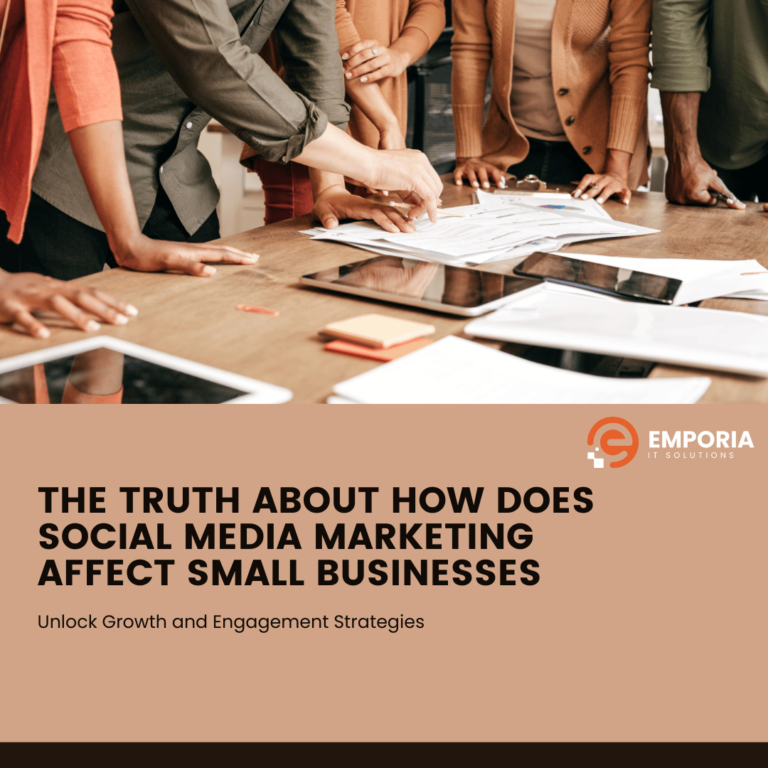Benefits of social media marketing for business
Benefits of social media marketing for business are numerous and impactful. Social media marketing involves using platforms like Facebook, Instagram, Twitter, LinkedIn, and others to promote products or services, engage with customers, and build brand awareness. In today’s digital age, social media has become an essential tool for businesses of all sizes to connect with their audience, drive traffic, and increase sales.
Social media’s importance in the current business landscape cannot be overstated. With billions of users worldwide, it offers unparalleled opportunities for businesses to reach potential customers, engage with their audience in real-time, and build a loyal customer base. The key benefits of social media marketing include increased brand awareness, improved customer engagement, cost-effective marketing, enhanced customer insights, increased website traffic, higher conversion rates, building brand loyalty, and gaining a competitive advantage.
Emporia is a leading digital marketing agency based in Sweden, specializing in helping businesses harness the power of social media marketing. With a team of experienced professionals, Emporia offers tailored strategies to enhance brand vihttps://eemporia.com/contact/sibility, engage with customers, and drive business growth. By leveraging the latest tools and techniques, Emporia ensures that businesses can maximize the benefits of social media marketing and achieve their marketing goals.
1. Increased Brand Awareness
One of the primary benefits of social media marketing for business is the significant boost in brand visibility. Social media platforms provide businesses with the opportunity to reach a vast audience, increasing the chances of being noticed by potential customers.
Social media platforms allow businesses to share content, engage with followers, and participate in conversations that are relevant to their industry. By consistently posting valuable content and interacting with users, businesses can increase their visibility and establish a strong online presence.
According to recent statistics, there are over .9 billion social media users worldwide¹. This massive user base means that businesses have the potential to reach a large and diverse audience. Additionally, studies have shown that 7% of consumers rely on social media to guide their purchasing decisions².
Many businesses have successfully leveraged social media to boost their brand awareness. For instance, Patagonia uses its Instagram page not only to highlight its products but also to draw attention to its sustainable initiatives and charitable programs. This approach not only promotes their products but also aligns with their brand values, resonating with their target audience.
2. Improved Customer Engagement
Benefits of social media marketing for business include significantly improved customer engagement. Social media platforms facilitate direct interaction with customers, allowing businesses to engage with their audience in real-time. This direct interaction helps build stronger relationships and fosters a sense of community around the brand.
Social media platforms like Facebook, Instagram, Twitter, and LinkedIn provide businesses with tools to interact directly with their customers. Features such as comments, direct messages, and live chats enable businesses to respond to customer inquiries, address concerns, and engage in meaningful conversations. This two-way communication is crucial for understanding customer needs and preferences.
Benefits of Real-Time Communication and Feedback
Real-time communication allows businesses to provide immediate support and feedback, enhancing customer satisfaction. It also enables businesses to quickly address any issues or concerns, preventing potential negative experiences from escalating.
Case Studies of Businesses with High Customer Engagement
Several businesses have successfully leveraged social media to boost customer engagement.
For example,Starbucks uses its social media platforms to interact with customers, share user-generated content, and promote its products.
Another example is Nike, which uses Twitter to provide customer support and engage with its audience through personalized responses and interactive content.
3. Cost-Effective Marketing
Benefits of social media marketing for business also extend to cost-effective marketing. Compared to traditional marketing methods, social media marketing offers a more affordable way to reach a large audience and achieve marketing goals.
Traditional marketing methods, such as TV ads, print media, and billboards, often require significant financial investment.
In contrast, social media marketing can be much more cost-effective. Creating and maintaining social media profiles is generally free, and even paid advertising on social media platforms tends to be more affordable than traditional advertising channels.
For instance, a well-targeted Facebook ad campaign can reach thousands of potential customers at a fraction of the cost of a TV commercial.
Tips for Maximizing ROI on Social Media Campaigns
To maximize ROI on social media campaigns, businesses should:
- Define clear goals and objectives: Establish what you want to achieve with your social media efforts, such as increasing brand awareness, driving website traffic, or generating leads.
- Target the right audience: Use social media analytics and insights to identify and target your ideal audience.
- Create engaging content: Develop content that resonates with your audience and encourages interaction.
Many businesses have achieved significant success with cost-effective social media strategies.
For example,Dollar Shave Club used a viral video campaign on YouTube to promote its subscription service, resulting in a massive increase in brand awareness and customer acquisition.
Similarly, Glossier, a beauty brand, leveraged Instagram to build a loyal community of followers and drive sales through user-generated content and influencer partnerships.
4. Enhanced Customer Insights
Benefits of social media marketing for business include gaining enhanced customer insights. Social media platforms provide businesses with valuable data about their audience, which can be used to refine marketing strategies and improve customer satisfaction.
Tools and Techniques for Gathering Customer Data
Several tools and techniques can help businesses gather customer data on social media:
- Social Media Analytics Tools: Platforms like Facebook Insights, Twitter Analytics, and Instagram Insights offer detailed data on user engagement, demographics, and behavior.
- Social Listening Tools: Tools like Hootsuite, Sprout Social, and Brandwatch allow businesses to monitor conversations about their brand and industry, providing insights into customer sentiment and trends.
- Surveys and Polls: Conducting surveys and polls on social media can directly gather customer feedback and preferences.
How to Use Insights to Refine Marketing Strategies
Using the data gathered from social media, businesses can:
- Identify Trends: Recognize emerging trends and adjust marketing strategies to stay relevant.
- Segment Audience: Create targeted marketing campaigns based on demographic and behavioral data.
- Improve Content: Tailor content to better meet the interests and needs of the audience.
- Enhance Customer Experience: Use feedback to improve products, services, and customer interactions.
Examples
- Netflix : Uses social media data to understand viewer preferences and recommend content, enhancing user experience and engagement.
- Coca cola : Monitors social media conversations to gauge customer sentiment and adjust marketing campaigns accordingly.
5. Increased Website Traffic and SEO
Benefits of social media marketing for business also extend to increased website traffic and improved SEO. Social media can drive significant traffic to a business’s website, which can positively impact search engine rankings.
Social media platforms are effective channels for driving traffic to websites. By sharing engaging content, businesses can attract users to their site. This includes:
- Sharing Blog Posts: Posting links to blog articles on social media can drive readers to the website.
- Promoting Products: Highlighting products with links to the online store can increase traffic and sales.
- Running Contests and Promotions: Encouraging users to visit the website for exclusive deals or contests.
Impact on Search Engine Rankings
While social media signals are not direct ranking factors for search engines like Google, they can indirectly influence SEO by:
- Increasing Backlinks: High-quality content shared on social media can attract backlinks from other websites.
- Boosting Engagement: Increased traffic and engagement from social media can improve site metrics, which search engines may consider in rankings.
- Enhancing Brand Visibility: A strong social media presence can increase brand searches, which can positively impact SEO.
Best Practices for Integrating Social Media with SEO Efforts
- Optimize Social Profiles: Ensure social media profiles are complete and include relevant keywords.
- Share Quality Content: Post valuable and shareable content that encourages engagement and backlinks.
- Use Hashtags and Keywords: Incorporate relevant hashtags and keywords in social media posts to increase visibility.
- Engage with Followers: Actively interact with followers to build a loyal community and drive consistent traffic to the website
6. Higher Conversion Rates
Benefits of social media marketing for business include achieving higher conversion rates. Social media marketing can significantly enhance conversion rates by effectively engaging potential customers and guiding them through the sales funnel.
How Social Media Marketing Can Lead to Higher Conversion Rates
Social media platforms provide businesses with the tools to create targeted and personalized marketing campaigns. By leveraging user data and behavior insights, businesses can tailor their content to meet the specific needs and preferences of their audience. This personalized approach increases the likelihood of converting social media interactions into sales.
Strategies for Optimizing Social Media Content
To optimize social media content for higher conversion rates, businesses can implement the following strategies:
- Create Compelling Calls to Action (CTAs): Encourage users to take specific actions, such as signing up for a newsletter, making a purchase, or downloading a resource.
- Use High-Quality Visuals: Eye-catching images and videos can capture users’ attention and drive engagement.
- Leverage User-Generated Content: Sharing content created by customers can build trust and authenticity, encouraging others to convert.
- Offer Exclusive Promotions: Limited-time offers and discounts can create a sense of urgency and drive conversions.
- Optimize Landing Pages: Ensure that landing pages are mobile-friendly, load quickly, and provide a seamless user experience.
Real-World Examples of Improved Conversion Rates Through Social Media
- Airbnb: By using Instagram Stories to showcase unique travel experiences and destinations, Airbnb increased its booking conversion rates. The visually appealing content and direct booking links made it easy for users to convert.
- ASOS: The fashion retailer uses shoppable posts on Instagram to allow users to purchase products directly from the app. This seamless shopping experience has led to higher conversion rates.
7. Building Brand Loyalty and Trust
Benefits of social media marketing for business also include building brand loyalty and trust. Establishing a loyal customer base is crucial for long-term business success, and social media provides an ideal platform for fostering these relationships.
A loyal customer base offers numerous advantages, including repeat business, positive word-of-mouth, and increased customer lifetime value. Loyal customers are more likely to advocate for the brand, provide valuable feedback, and remain loyal even in the face of competitive offers.
Techniques for Fostering Trust and Loyalty Through Social Media
- Consistent Engagement: Regularly interact with followers by responding to comments, messages, and mentions. This shows that the brand values its customers and is attentive to their needs.
- Transparency and Authenticity: Share behind-the-scenes content, company values, and stories that resonate with the audience. Being transparent about business practices builds trust.
- User-Generated Content: Encourage customers to share their experiences with the brand and feature their content on the brand’s social media channels. This not only builds community but also provides social proof.
- Exclusive Content and Rewards: Offer loyal followers exclusive content, early access to products, or special discounts. This makes them feel valued and appreciated.
The benefits of social media marketing for business are vast and cannot be ignored. From increased brand awareness and improved customer engagement to cost-effective marketing and enhanced customer insights, social media marketing offers numerous advantages that can drive business growth. Additionally, higher conversion rates, building brand loyalty, and gaining a competitive edge further highlight the indispensability of social media marketing for businesses.
Final Thoughts on the Indispensability of Social Media Marketing for Businesses
Social media marketing is no longer optional; it is a crucial component of any successful marketing strategy. Businesses that leverage social media effectively can connect with their audience, build a strong brand presence, and achieve their marketing goals.







